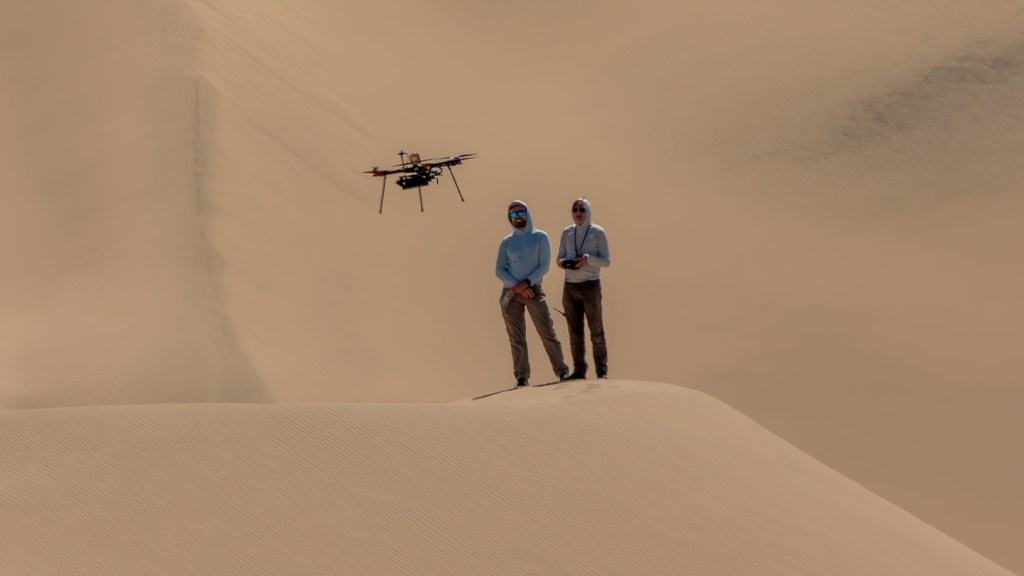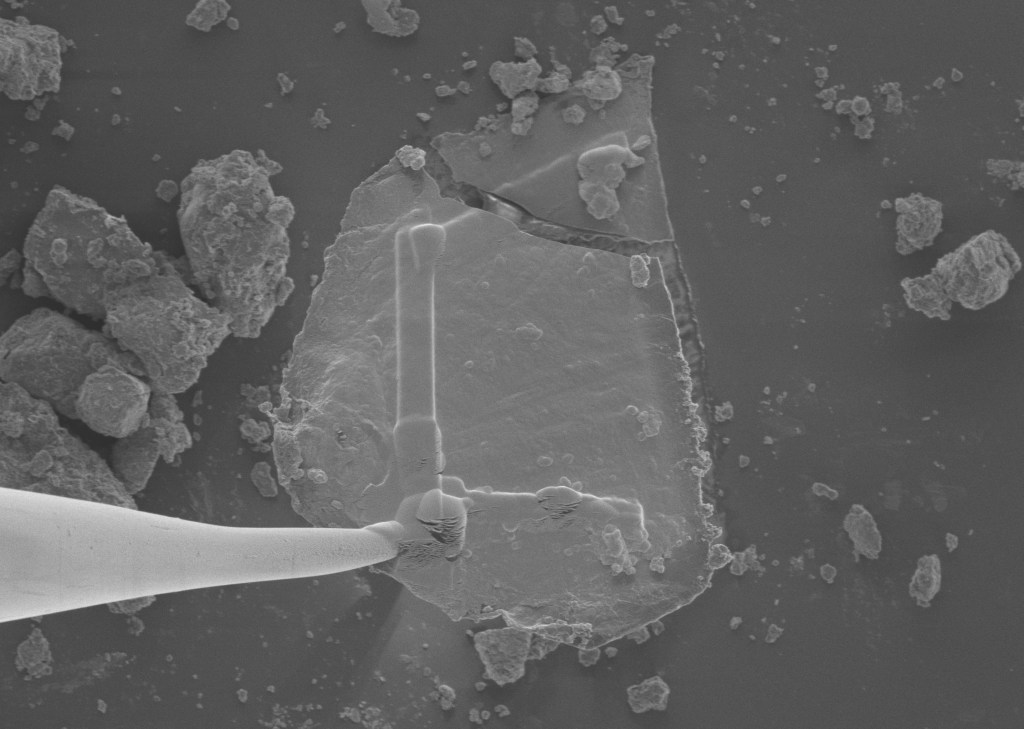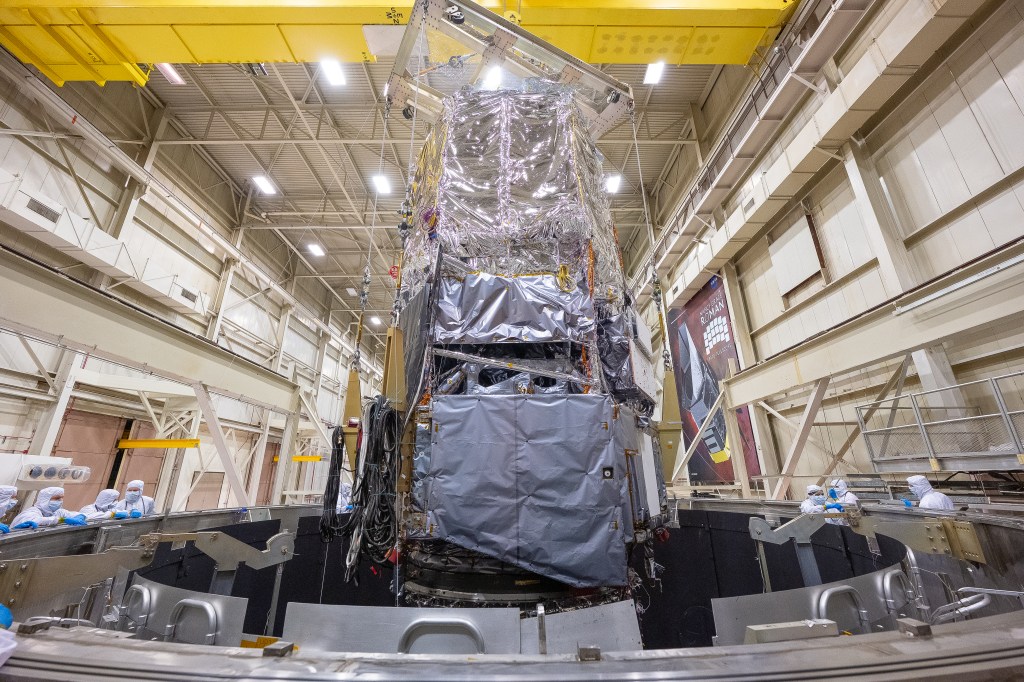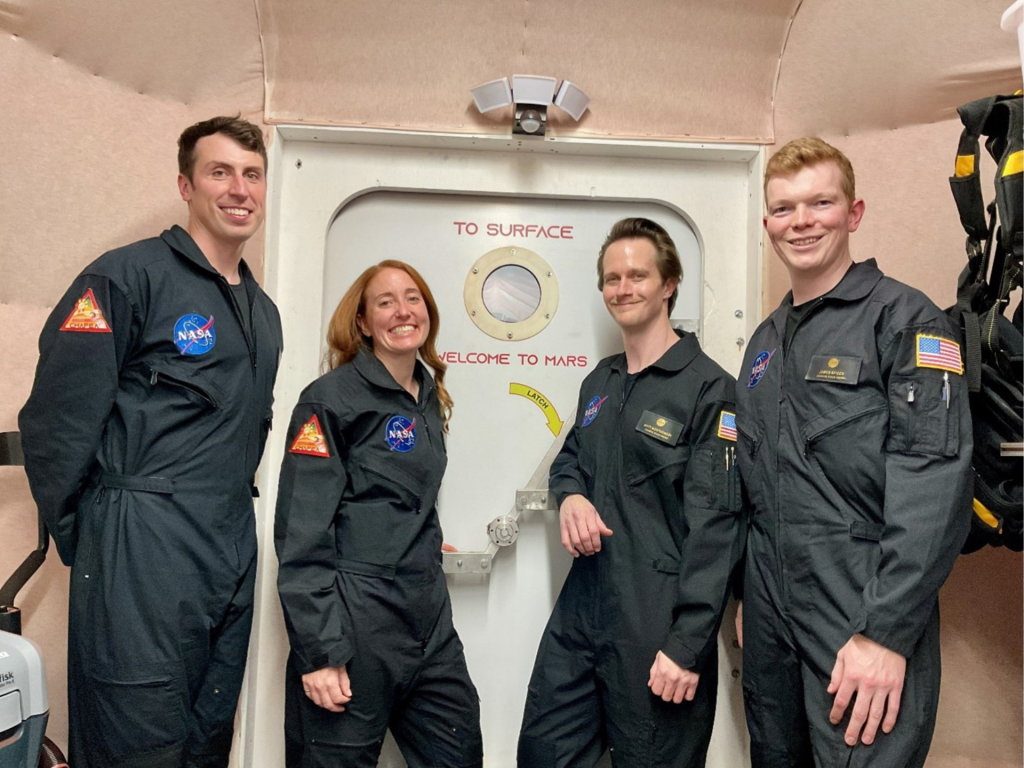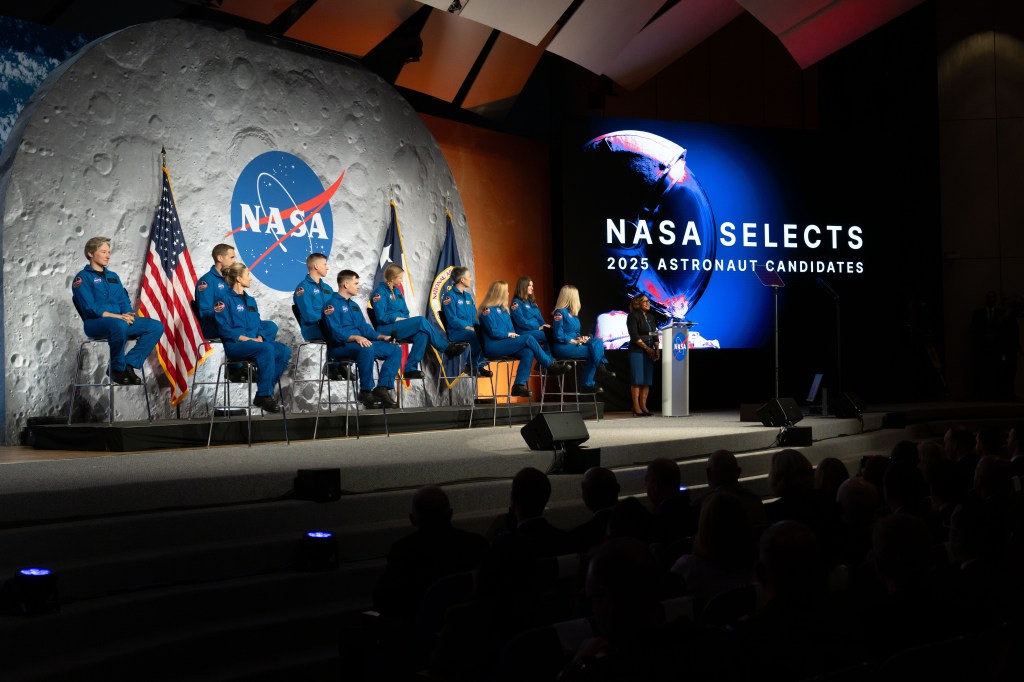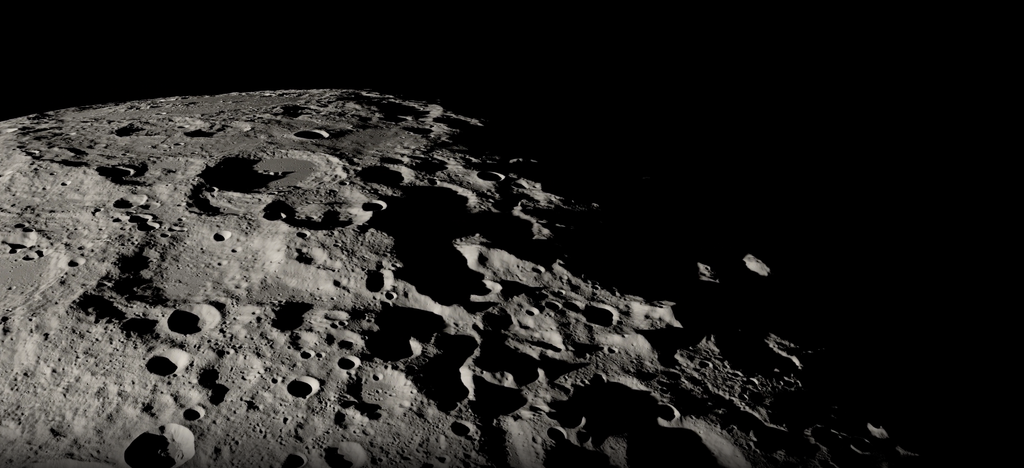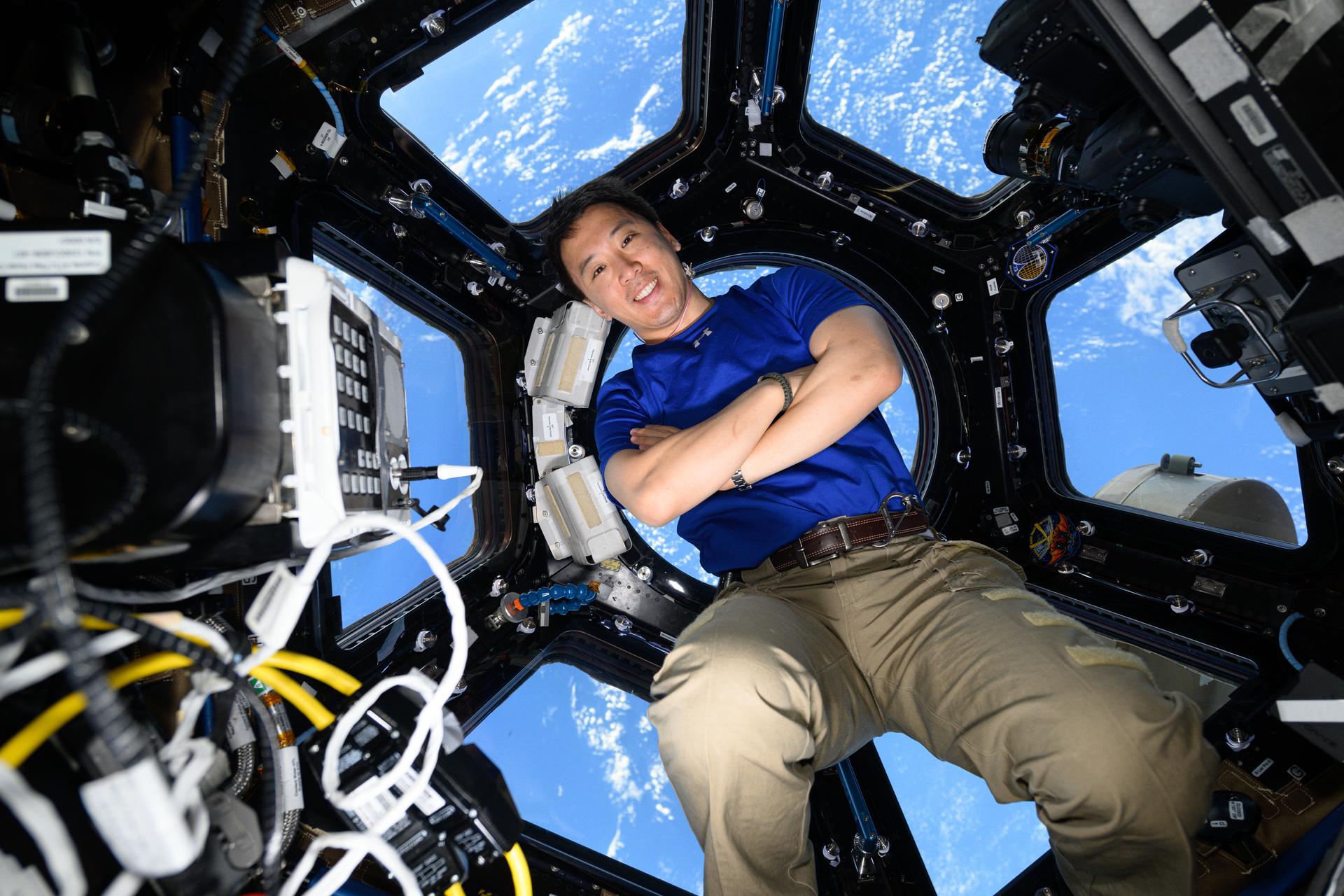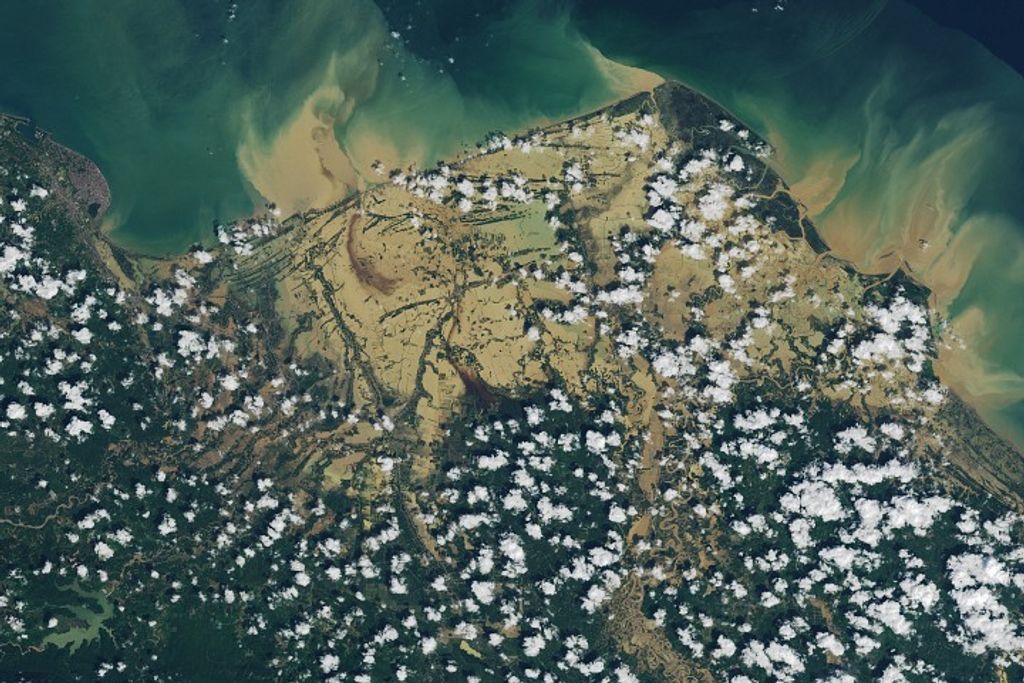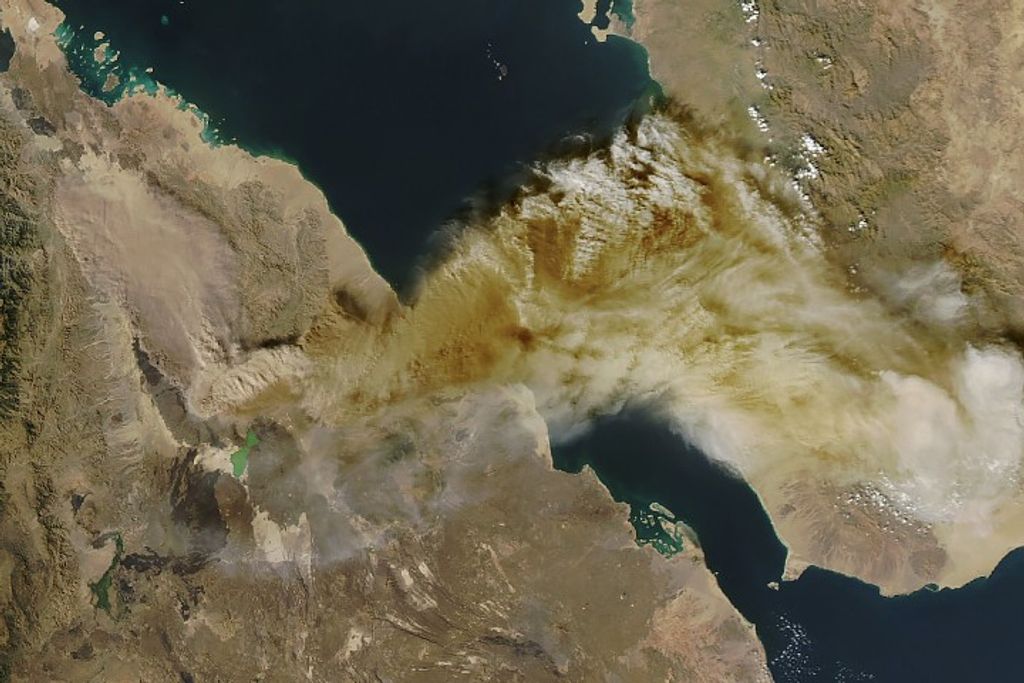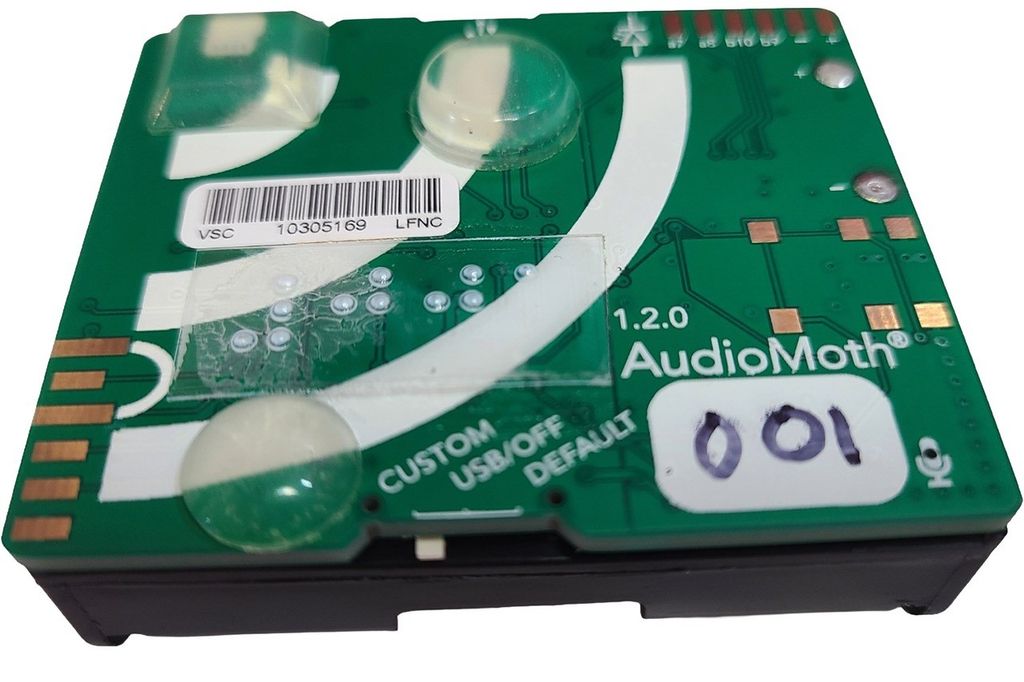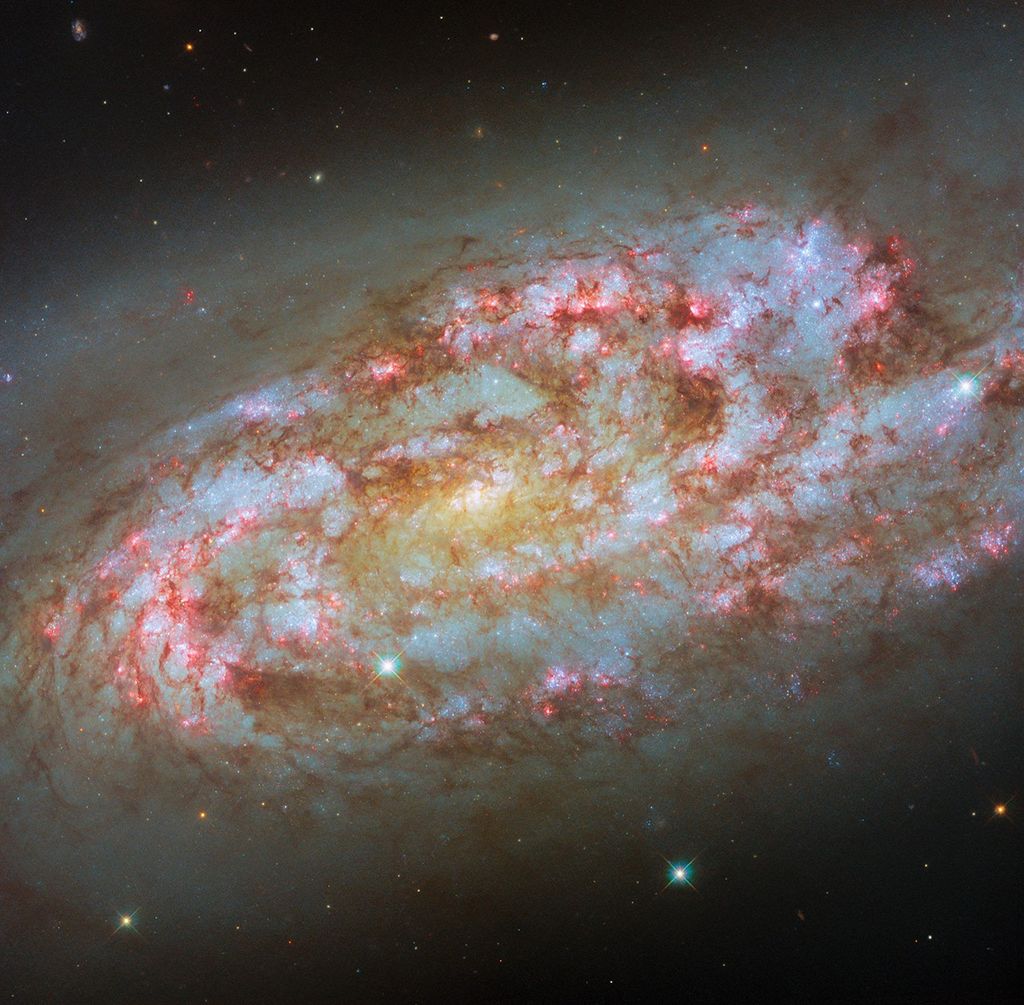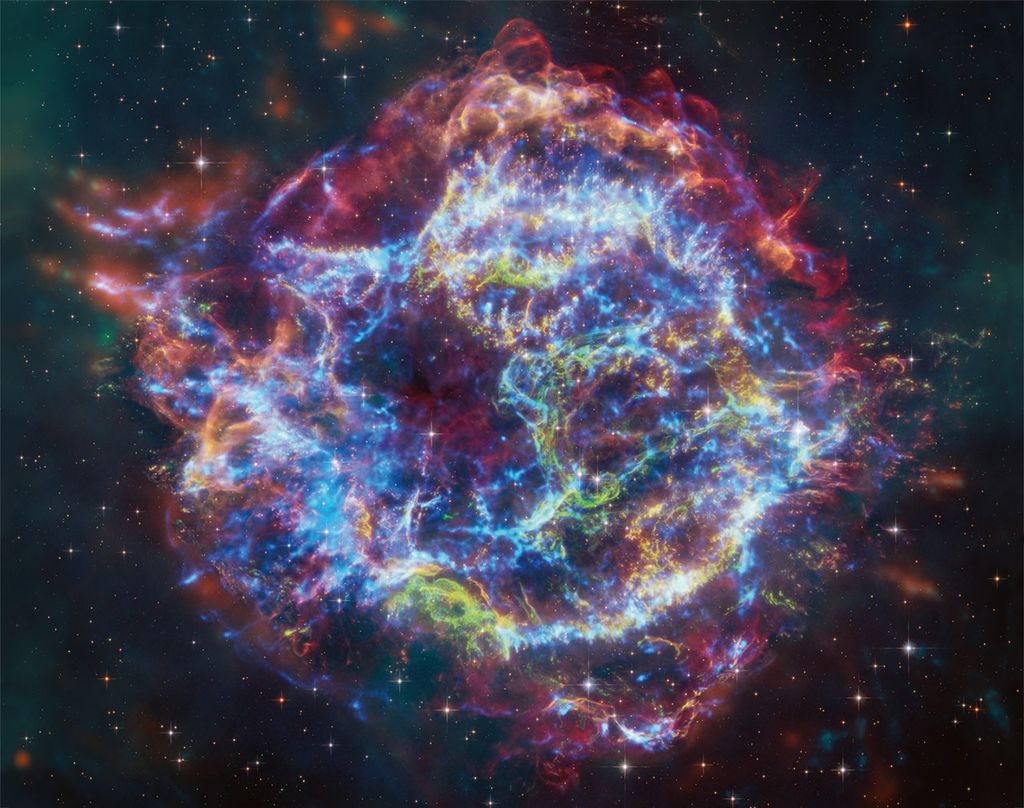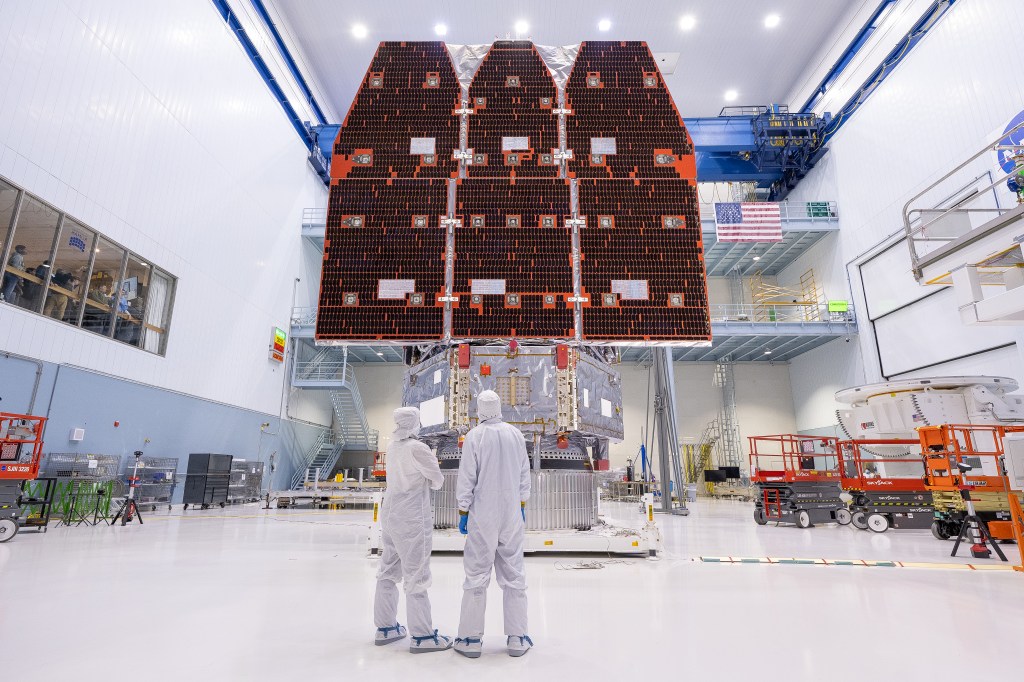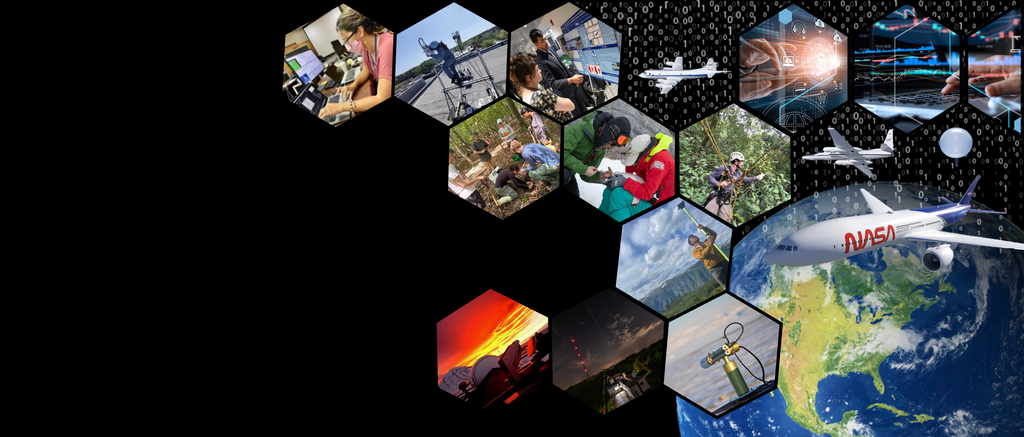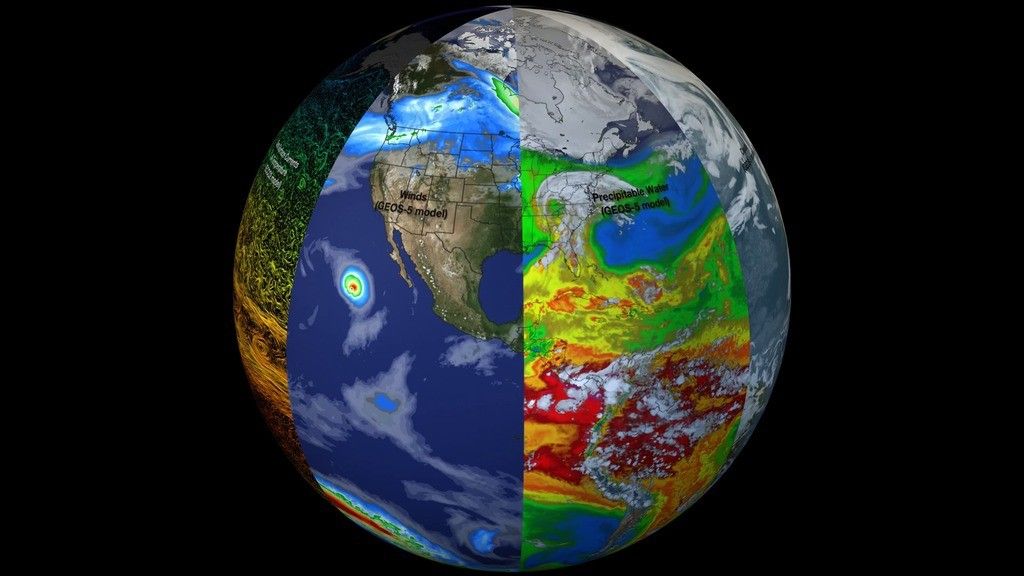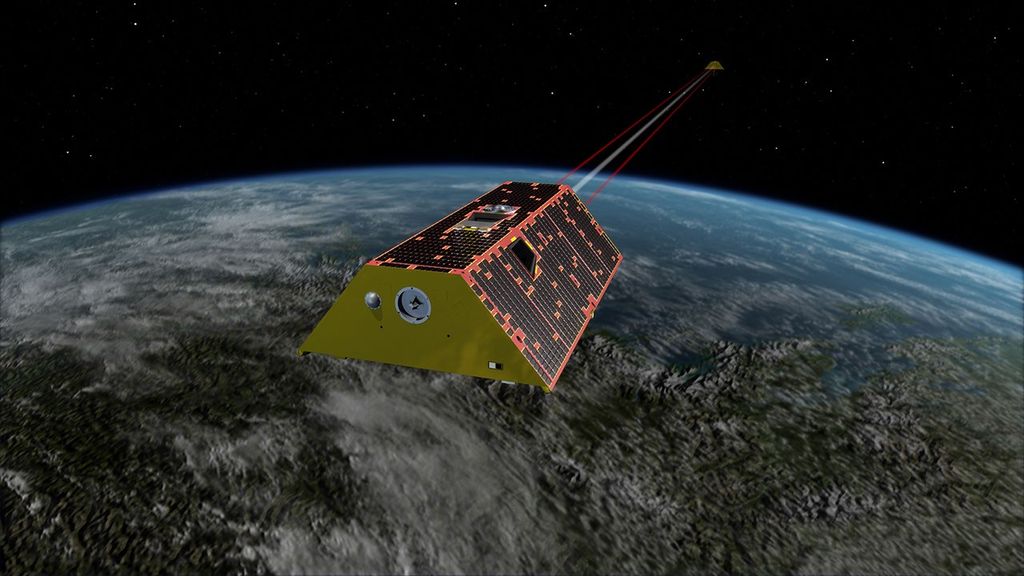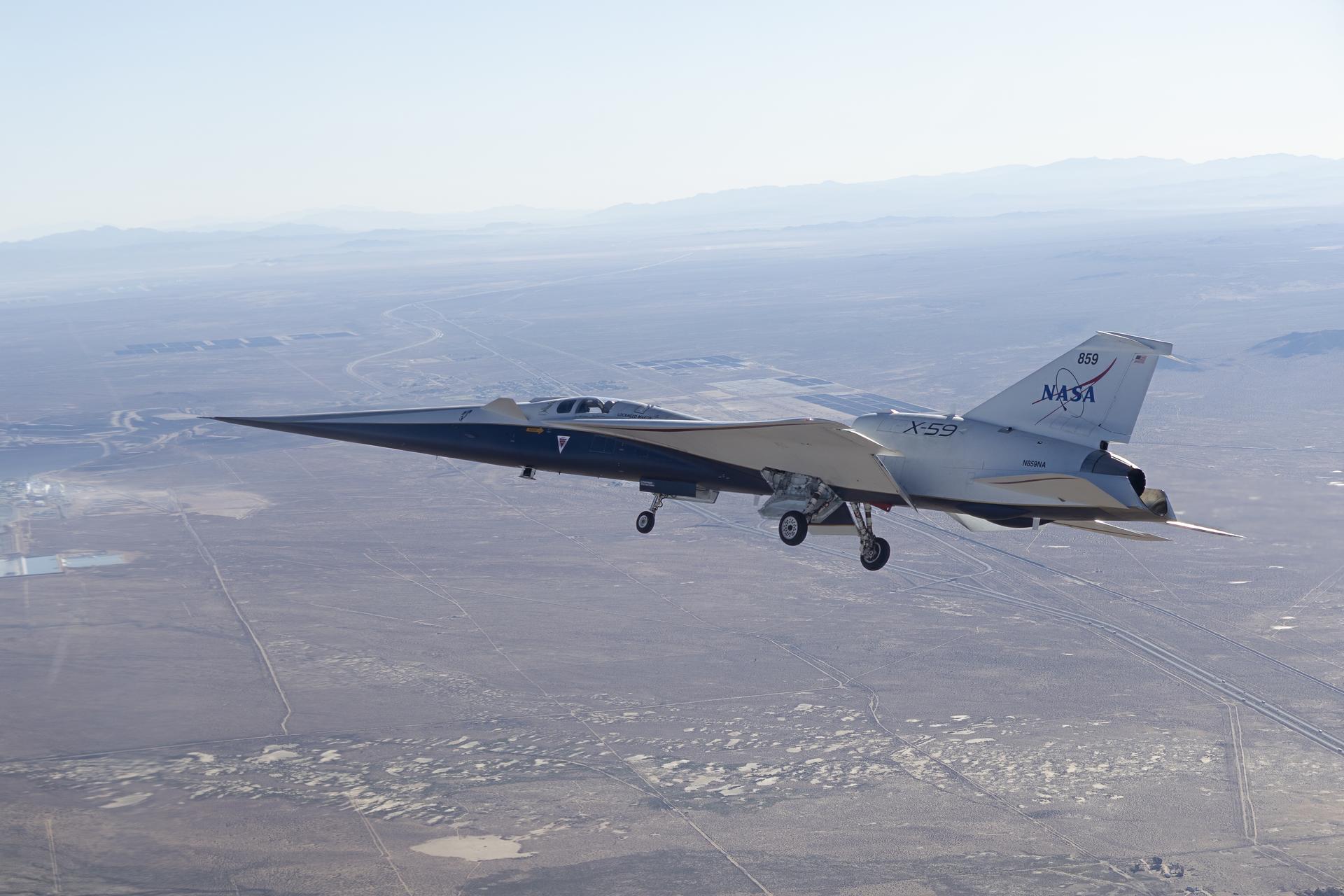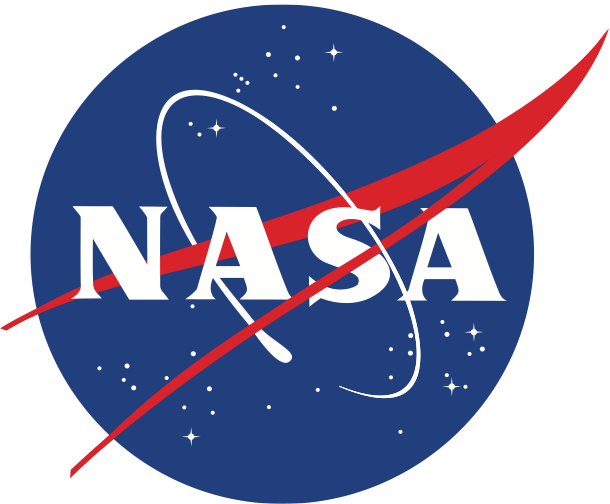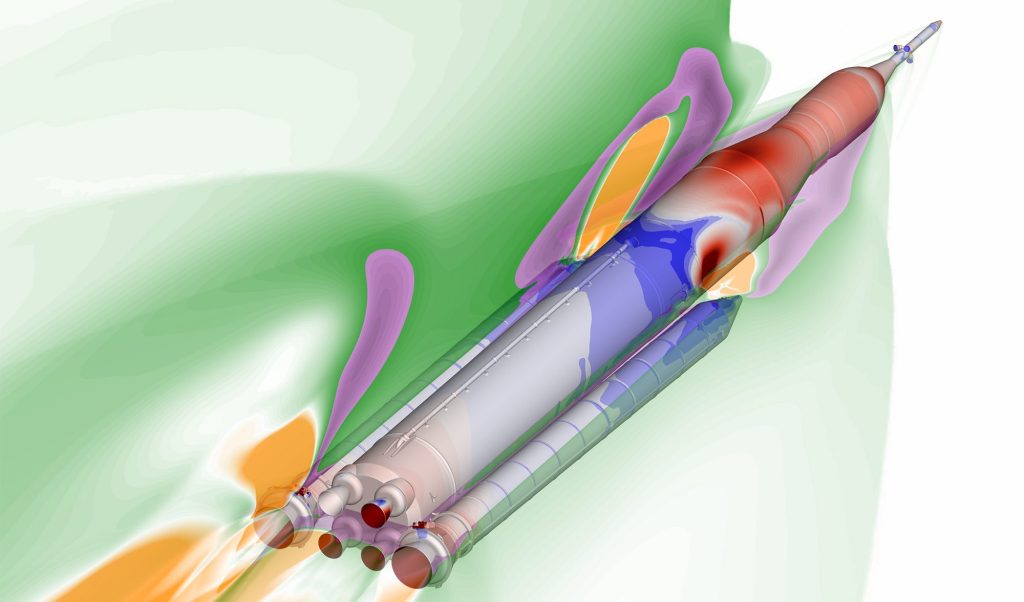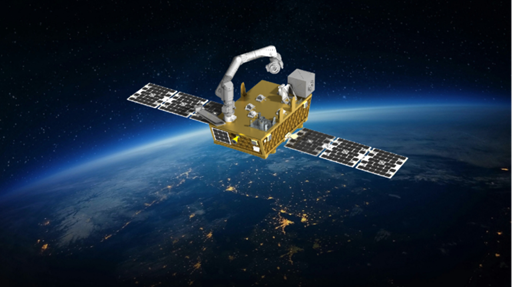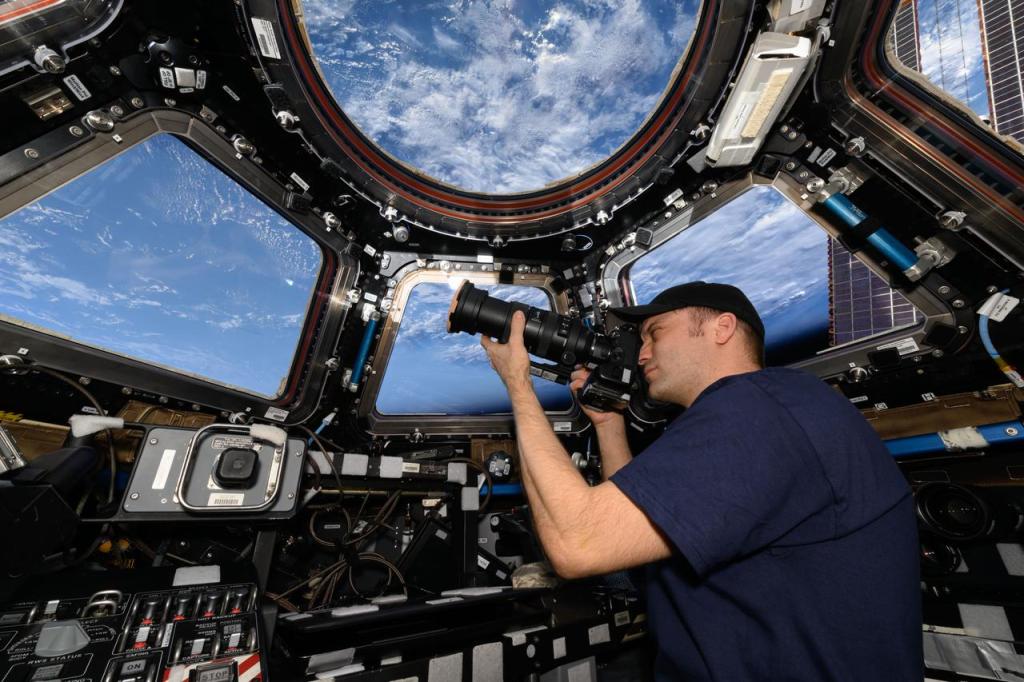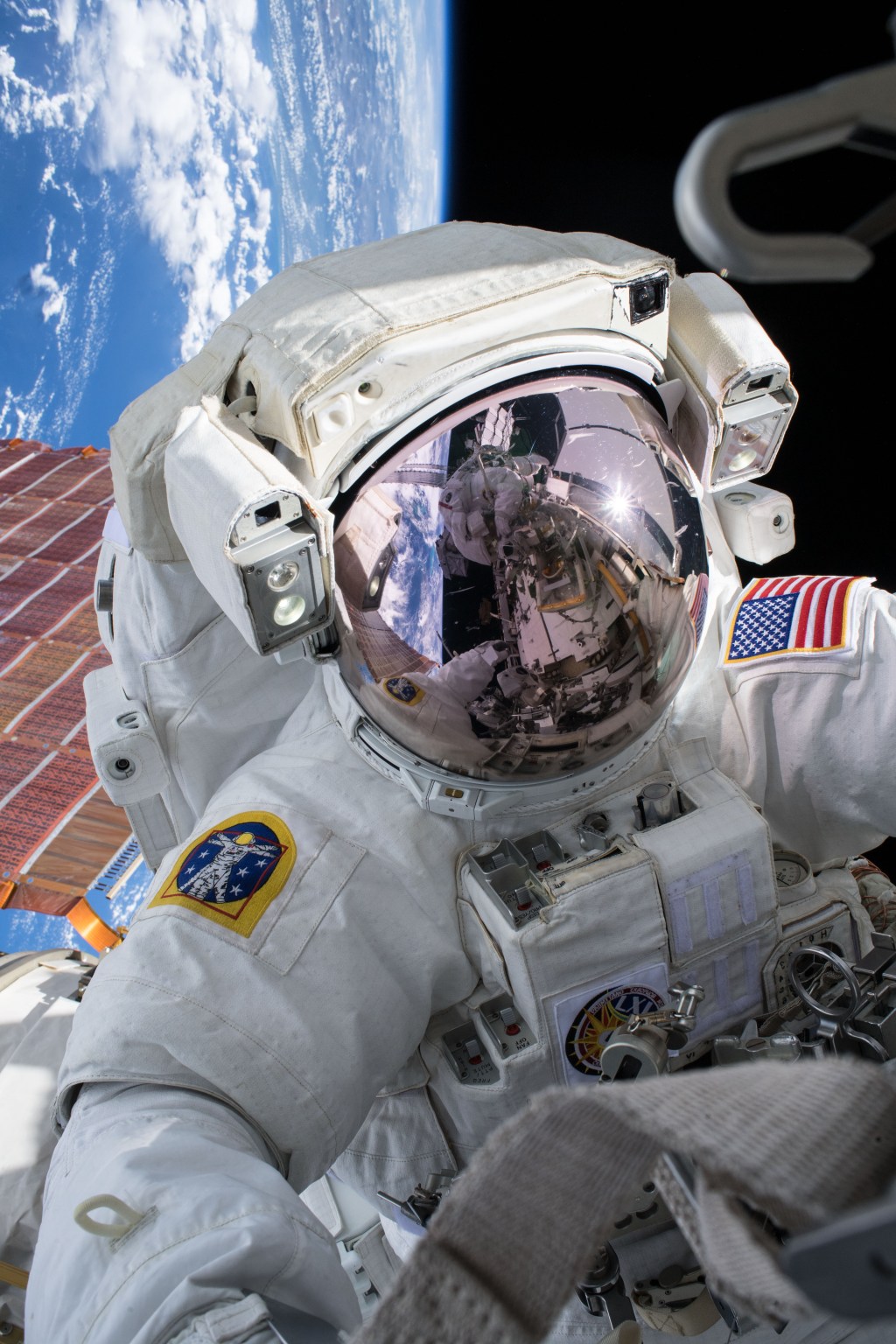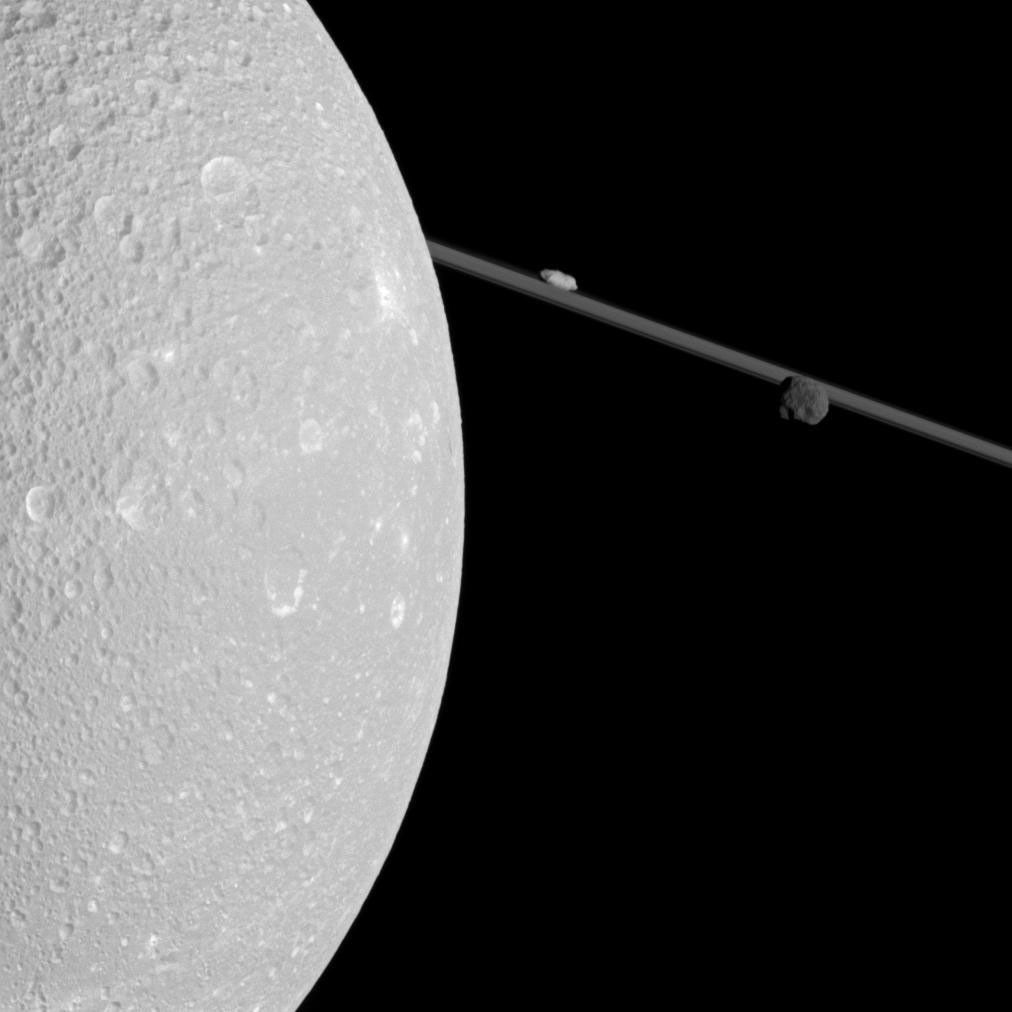Closest Dione Flyby
| PIA Number | PIA14590 |
|---|---|
| Language |
|
Flying past Saturn's moon Dione, Cassini captured this view which includes two smaller moons, Epimetheus and Prometheus, near the planet's rings.
The image was taken in visible light with Cassini's narrow-angle camera during the spacecraft's flyby of Dione on Dec. 12, 2011. This encounter was the spacecraft's closest pass of the moon's surface, but, because this flyby was intended primarily for other Cassini instruments, it did not yield Cassini's best images of the moon. Higher resolution images were obtained during earlier flybys (see At Carthage Linea).
Dione (698 miles, or 1,123 kilometers across) is closest to Cassini here and is on the left of the image. Potato-shaped Prometheus (53 miles, or 86 kilometers across) appears above the rings near the center top of the image. Epimetheus (70 miles, or 113 kilometers across) is on the right.
This view looks toward the northern, sunlit side of the rings from less than one degree above the ring plane. The view was acquired at a distance of approximately 67,000 miles (108,000 kilometers) from Dione. Image scale is 2,122 feet (647 meters) per pixel on Dione.
The Cassini-Huygens mission is a cooperative project of NASA, the European Space Agency and the Italian Space Agency. The Jet Propulsion Laboratory, a division of the California Institute of Technology in Pasadena, manages the mission for NASA's Science Mission Directorate in Washington. The Cassini orbiter and its two onboard cameras were designed, developed and assembled at JPL. The imaging team is based at the Space Science Institute, Boulder, Colo.
For more information about the Cassini-Huygens mission visit http://saturn.jpl.nasa.gov or http://www.nasa.gov/cassini . The Cassini imaging team homepage is at http://ciclops.org .
Credit: NASA/JPL-Caltech/Space Science Institute

